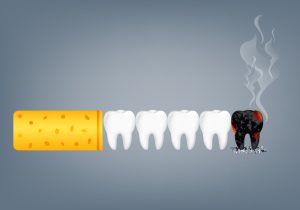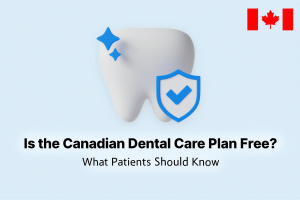Yes, nighttime teeth grinding, or bruxism, can ruin your smile while you sleep, and we might not know that you’re grinding until significant damage has already been done.
If you find yourself waking up with jaw pain or noticing that your teeth are being worn down significantly quicker than ever, you may have a problem, but early detection and the right care can protect your smile for the long term.
If you suspect you may have teeth grinding (bruxism) during sleep, it is important to consider your options for bruxism treatment in Calgary before the damage is irreversible.
What Are The Most Common Signs of Teeth Grinding at Night?
Some of the most common signs of teeth grinding while sleeping, or bruxism, include:
- Headaches in the morning
- Soreness in your jaw or facial muscles
- Flattened or chipped teeth
- Increased sensitivity in teeth
- A disturbed sleep pattern
- Pain in the jaw while chewing
- Teeth are appearing shorter than before
These signs of nighttime teeth grinding can creep up on you, and you might see that your partner hears grinding noises, or your dentist might spot unusual wear on your enamel during the treatment.
How Can You Tell If You’re Grinding Your Teeth At Night?
As it happens, while you’re sleeping, you may not know you have bruxism until it starts affecting your health. Here’s how you can tell:
- You wake up with tension headaches or sore jaw muscles
- Your teeth appear shorter or more worn down
- You hear clicking sounds in your jaw
- You often feel unrested, even after a full night’s sleep
- Someone else hears you grinding in your sleep
If you notice any of these issues, your dentist can help confirm if teeth grinding is the cause.
What Are the Symptoms of Bruxism During Sleep?
Bruxism doesn’t just affect your teeth. It can cause other symptoms, including:
- Earaches (even when there’s no ear infection)
- Tight or tired jaw muscles
- Neck or shoulder pain
- Gum recession from pressure on the teeth
- Clicking or popping in the jaw joints
The symptoms of bruxism while sleeping may seem unrelated at first, but over time, the pattern becomes more obvious.
How Does Teeth Grinding Affect Oral Health Over Time?
Without treatment, bruxism can cause long-term damage. Here are some of the most common effects:
- Cracked or broken teeth
- Damaged dental restorations (crowns, fillings)
- Sensitivity in Your Tooth
- TMJ (temporomandibular joint) disorders
- Gum inflammation or recession
- Changes in bite alignment
Mild vs. Rugged Bruxism Effects
| Condition | Mild Bruxism Effects | Severe Bruxism Effects |
| Tooth wear | Slight enamel thinning | Deep cracks and fractures |
| Jaw discomfort | Occasional stiffness | Chronic jaw pain and TMJ dysfunction |
| Sleep quality | Mild restlessness | Severe sleep disruption |
| Dental restoration | Slight wear on fillings | Damage to crowns and dental bridges |
These effects of teeth grinding on oral health can lead to more complex and expensive dental treatments later.
When Should You Visit a Dentist for Teeth Grinding?
If you suspect you’re grinding your teeth, a dentist in Calgary can identify your symptoms and recommend treatment. They may suggest:
- Donning a personalized night watch
- Techniques for managing stress
- Jaw exercises or physical therapy
- Taking care of underlying sleep issues
- Injections of Botox for severe instances
The sooner you visit a dental professional, the better your chances of avoiding permanent damage.
How Can You Prevent Damage from Nighttime Teeth Grinding?
Preventing damage from nighttime grinding starts with these small steps:
- Avoid caffeine and alcohol before bed
- Practice relaxation techniques like deep breathing or meditation
- Don’t chew gum or bite your nails
- Try jaw stretches or warm compresses before sleep
- Get fitted for a night guard if recommended by your dentist
These lifestyle changes, when combined with professional care, can go a long way in protecting your teeth.
Don’t Ignore the Signs of Bruxism
Teeth grinding may seem harmless at first, but it can have serious long-term effects if left untreated. The earlier you catch it, the easier it is to manage. Whether you’re noticing jaw pain, worn teeth, or disrupted sleep, don’t ignore the signs.
Visit Inglewood Family Dental in Calgary to talk to a professional and take the first step toward protecting your smile from nighttime grinding.
Your smile deserves restful nights and healthy mornings.
Frequently Asked Questions About Teeth Grinding
What causes teeth grinding at night?
Stress, anxiety, sleep disorders, and bite misalignment are common causes of nighttime grinding.
How do I know if I need a night guard?
If you experience jaw pain, worn teeth, or headaches in the morning, your dentist may recommend a night guard after an exam.
Can teeth grinding go away on its own?
Mild bruxism may resolve without treatment, especially in children, but adult cases usually require dental support or stress management.
Will insurance cover bruxism treatment?
Various dental insurance plans cover part of the cost for night guards or treatment if medically necessary. It’s best to check with your provider.






